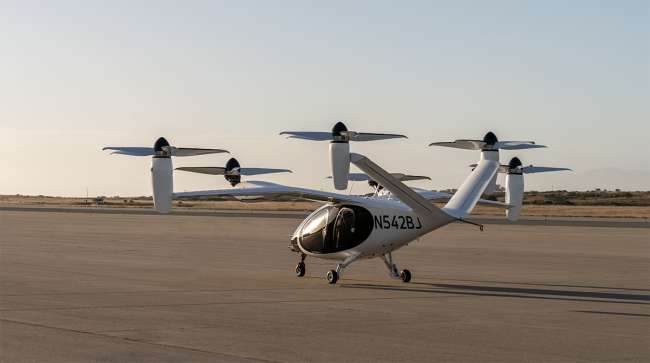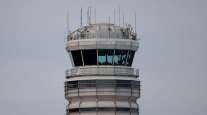Bloomberg News
Joby Says FAA OKs In-House Software for Air Taxi Service

[Stay on top of transportation news: Get TTNews in your inbox.]
Joby Aviation Inc. said it received regulatory clearance to use software products that the electric aviation startup has developed in-house since acquiring Uber’s air taxi division in 2021, a key step toward commercial operation of its commuter aircraft.
The suite of software authorized by the Federal Aviation Administration includes tools for pilots, a mobile app for riders and a matching system to pair customers with available aircraft, Joby said in a statement June 20.
Joby is among manufacturers of air taxis seeking to fly customers on short commuter journeys. The company has said it could be ready to begin commercial operations as soon as 2025, though certification by the FAA and other regulators is still pending.
While the software authorization marks a milestone in the company’s journey to launch the first commercial service, Joby still has several other hurdles to overcome. The software will help the company with on-demand bookings, payments and rapid turnarounds, similar to what ground-based ride sharing operations would offer, it said.
Announcing ElevateOS: a proprietary suite of software tools we've developed to enable the safe and efficient operation of a high-tempo, on-demand air taxi service.
ElevateOS includes a pilot app, an operations core, and a consumer-friendly rider app – each of which we have been… pic.twitter.com/cwDOieGmvJ — Joby Aviation (@jobyaviation) June 20, 2024
There’s “no way to do on-demand, high-volume, high-frequency service without a software package to manage it,” Bonny Simi, Joby Aviation’s president of operations, said in an interview.
The latest Joby announcement comes a few weeks after one of its main rivals, Archer Aviation Inc., said it had received FAA certification to begin operating aircraft commercially — Joby got its carrier certificate in 2022.
Joby said in February it had also completed the third of five stages of the FAA’s type certification process, which approves the design of an aircraft and component parts. The latest stage covered “all of the aircraft’s structural, mechanical, and electrical systems” and the planned approach to cybersecurity, human factors and noise, the company said at the time.
Want more news? Listen to today's daily briefing above or go here for more info
It has since turned to the next part of the process, where it’ll test and analyze every component of the aircraft, as well as the entire vehicle, for FAA credit.
Simi said the company is making progress on flight simulators it’s developing with CAE Inc., which it partnered with two years ago. The company also said it has developed a training course to prepare commercial pilots to fly its aircraft in about six weeks, and that it has started offering private pilot training and ground school as part of an academy to develop future pilots.
“To scale we have to have a pilot pipeline,” Simi said.




